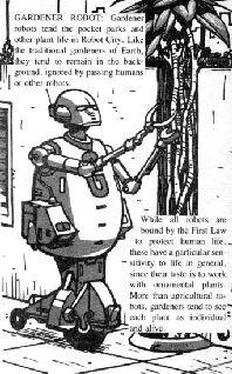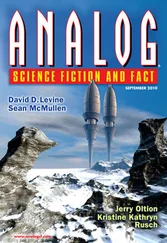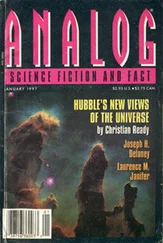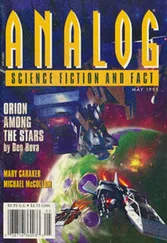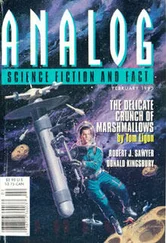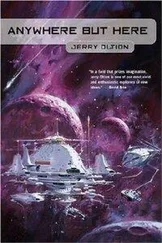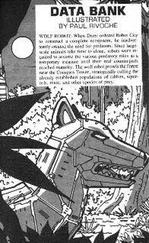Jerry Oltion - Alliance
Здесь есть возможность читать онлайн «Jerry Oltion - Alliance» весь текст электронной книги совершенно бесплатно (целиком полную версию без сокращений). В некоторых случаях можно слушать аудио, скачать через торрент в формате fb2 и присутствует краткое содержание. Год выпуска: 1990, ISBN: 1990, Издательство: Ace Books, Жанр: Фантастика и фэнтези, на английском языке. Описание произведения, (предисловие) а так же отзывы посетителей доступны на портале библиотеки ЛибКат.
- Название:Alliance
- Автор:
- Издательство:Ace Books
- Жанр:
- Год:1990
- ISBN:ISBN: 0-441-73130-9
- Рейтинг книги:3 / 5. Голосов: 1
-
Избранное:Добавить в избранное
- Отзывы:
-
Ваша оценка:
- 60
- 1
- 2
- 3
- 4
- 5
Alliance: краткое содержание, описание и аннотация
Предлагаем к чтению аннотацию, описание, краткое содержание или предисловие (зависит от того, что написал сам автор книги «Alliance»). Если вы не нашли необходимую информацию о книге — напишите в комментариях, мы постараемся отыскать её.
Alliance — читать онлайн бесплатно полную книгу (весь текст) целиком
Ниже представлен текст книги, разбитый по страницам. Система сохранения места последней прочитанной страницы, позволяет с удобством читать онлайн бесплатно книгу «Alliance», без необходимости каждый раз заново искать на чём Вы остановились. Поставьте закладку, и сможете в любой момент перейти на страницу, на которой закончили чтение.
Интервал:
Закладка:
“That would seem to be a logical conclusion. However, there is an obvious boundary condition, that being when already existing human genetic material realizes its potential to become another human.”
“That’s the human-at-conception argument. My problem with that is that every cell in the body can become human under the right conditions. Every one of them has the necessary genes. So am I supposed to nurture them all?”
“I take that to be a rhetorical question, since the answer is obvious.”
Wolruf laughed, and Ariel said, “Right. So just because it’s a cell with the potential, that doesn’t make it human. A fertilized egg cell is a special case, but it’s still just a cell with the right genes. It can become human if you let it, but it isn’t yet. The main difference with a fertilized egg is that if you do nothing, you get a human, where with a regular cell, you have to nurture it on purpose.”
Lucius nodded his assent. “The First Law of Robotics leads me to the conclusion that inaction brings with it as much responsibility as direct action. Therefore, I must also conclude that allowing a fertilized egg to mature carries the same responsibility as would purposefully cloning any other cell of your body.”
“And the same moral considerations apply in either case,” Ariel said. “To let a fertilized egg grow, you had better want the end product-a human being-as much as if you had to clone it.”
“Does it follow, then, that not allowing it to grow carries no more responsibility than not nurturing a clone?”
“I think it does, at the very start. However, and it’s a big ‘however, ‘ it doesn’t stay a single cell for very long. The longer you wait, the stronger the moral consideration becomes. Once you’ve decided to keep a baby, or nurture a clone, then you can’t morally go back on your decision once that baby has become human.”
“We are back to the original question. When does an embryo become human?”
“I already told you, I don’t know.”
“Let us look at your specific case. Supposing there were no complications in its development, would the embryo you carry normally be considered human at this stage?”
Ariel bit her lip again, but again she didn’t order the robot to shut up.
“Again, I don’t know. It’s not quite a month along, and at a month its body is just starting to differentiate. It should have nerve cells, but the brain should just be starting to form. There’s no mental activity of any sort yet. You tell me, is it human yet?”
“I do not have enough data to come to a conclusion. Any statement I made would have to be considered opinion.”
Derec laughed. “That’s all any definition can ever be. You want to know what a human is? A human is whatever you’re pointing to when you call it a human. It’s all a matter of opinion, and it always will be.”
“Then we could, if we wished, stretch the definition to include me.”
Derec’s mouth dropped open in surprise. He stammered for words, but Wolruf’s throaty laughter only increased his discomfort.
Wolruf’s mirth wound down, and she said, apparently with seriousness, “I’m willing to grant ‘u that distinction, if you grant it to me.”
“It’s a two-edged sword,” Ariel put in. “If you’re human, then so is any thinking being, organic or otherwise.”
Lucius was slow in responding, as if he had to think through the logical implications of her statement, but when he did speak it was with certainty. He said, “I still operate at a disadvantage under such a definition. Calling me human does not relieve me of my programming to obey humans. If you are correct, then calling myself human merely means that I must obey everyone’s orders. I cannot assume that other robots would obey my orders, or that humans would do so, so I have gained nothing.”
“True enough,” Derec admitted.
“Being human, it seems, is not the ideal I had expected it to be.”
“Not surprising. Nobody said we were the pinnacle of creation.”
Lucius stood up and went to the window. He looked up into the sky, as if seeking confirmation from above, but there was only gray cloud and rain. He turned back to Derec and Ariel and said, “We stray from the subject.”
“Do we?” Derec persisted. “You’re trying to find out when something becomes human. Defining what isn ’ t human can be just as useful as defining what is.”
Lucius returned to his seat. “Very well, then. Let us continue along this line of discussion. Can I or can I not ever expect to be considered human?”
Derec looked to Ariel, then to Wolruf, then back to Lucius. “Like I said, it depends on your definition. But probably not. Genes are usually part of it, and you don’t have the genes.”
“The test creatures I produced had human genes, yet neither Dr. Avery nor the city robots considered them human. Were they in error?”
“No,” Derec said. “Not about that, anyway. They didn’t have to kill them just because they weren’t human, but that’s beside the point.”
“I agree. The point is, genetics isn’t a sufficient condition, either.”
“Maybe it is,” Ariel put in. “You switched off the genes for intelligence; if you hadn’t done that-if you’d left the entire genetic code intact-then what you came up with would have been human.”
“Even though they would have been created, not from other human genetic material, but from an electronically stored map of that genetic material?”
“That’s right.”
Derec’s eyes widened in sudden comprehension. “I just realized what you would have wound up with. That stored code you found; it had to be the code for a specific person. You’d have gotten a bunch of clones of the same person.”
“But they would all have been human.”
“I guess so. Again, it’s all in your definition. There was a time when clones weren’t considered human, either.”
Lucius paused in thought, then said, “So the definition of ‘human’ also changes over time.”
“That’s right.”
“I am led to the conclusion that my search for a boundary condition which defines a human is doomed to failure. There is no boundary condition. A baby doesn’t start out human, but it grows slowly more so. Eventually, through gradual change, it becomes generally recognized as human, though no two will agree on an exact moment when that label becomes accurate. Similarly, I may become human in some beings’ estimation, but not in others, yet neither estimation is necessarily wrong. Have I reasoned correctly?”
“That’s as close as you’re likely to get, anyway,” Derec said.
Lucius stood up. “I have received enough input for the moment. Thank you.” Without waiting for acknowledgment, he strode from the room. Ariel waited until she heard the door close softly behind him, then burst into a fit of giggles.
“You’ve confused the poor thing beyond hope!” she said between fits.
Derec joined her in her laughter. “He asked for it.”
Wolruf wasn’t laughing. She waited until Derec and Ariel had calmed down somewhat, then said, “Don’t ‘u wonder why ‘e asked?”
“I know why,” Derec answered. “He wants to know who to serve.”
“That doesn’t bother ‘u?”
“Not really. At the worst, if he decides nobody’s human and he doesn’t have to follow anybody’s orders, then we’ve got another independent thinking being among us. True, he was trouble once before when he was on his own, but he’s matured a lot since then. He’s got a social conscience now. I’ve got no reason to believe he’ll be any more of a danger to us now than any other intelligent being would be, and we’ve still got plenty of robots who will follow our orders, so why worry?”
Читать дальшеИнтервал:
Закладка:
Похожие книги на «Alliance»
Представляем Вашему вниманию похожие книги на «Alliance» списком для выбора. Мы отобрали схожую по названию и смыслу литературу в надежде предоставить читателям больше вариантов отыскать новые, интересные, ещё непрочитанные произведения.
Обсуждение, отзывы о книге «Alliance» и просто собственные мнения читателей. Оставьте ваши комментарии, напишите, что Вы думаете о произведении, его смысле или главных героях. Укажите что конкретно понравилось, а что нет, и почему Вы так считаете.
